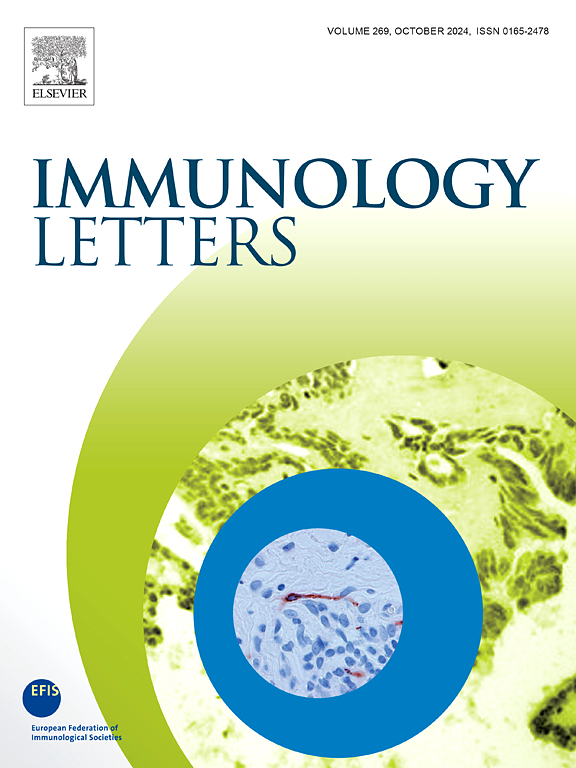Immune checkpoint molecules as predictive markers of COVID-19 severity: A comprehensive univariable and multivariable analysis
IF 2.8
4区 医学
Q3 IMMUNOLOGY
引用次数: 0
Abstract
Immune dysregulation plays a key role in the deterioration of COVID-19. This study evaluated immune checkpoint molecules (ICMs) as markers of disease severity. Immunophenotyping of 525 hospitalised patients with moderate (n=464) and severe (n=61) COVID-19 was performed at admission and analysed alongside clinical, laboratory, and imaging data. The strongest correlations with severe outcomes and mortality were found for CD200R+CD3+ T and CD19+ B cells. Significant differences in PD-1+ and PD-L1+ lymphocyte subsets were observed between severity groups. Machine learning (SHAP) confirmed that ICM expression was at least as predictive as conventional risk factors. These findings suggest that markers of immune exhaustion, especially PD-1, PD-L1, and CD200R, may help predict COVID-19 severity. Further research is needed to determine whether targeting immune checkpoints could improve outcomes.
免疫检查点分子作为COVID-19严重程度的预测标志物:一项综合单变量和多变量分析
免疫失调是COVID-19恶化的关键因素。这项研究评估了免疫检查点分子(ICMs)作为疾病严重程度的标志物。在入院时对525名中度(n=464)和重度(n=61) COVID-19住院患者进行免疫分型,并结合临床、实验室和影像学数据进行分析。CD200R+CD3+ T和CD19+ B细胞与严重结局和死亡率的相关性最强。严重程度组间PD-1+和PD-L1+淋巴细胞亚群差异有统计学意义。机器学习(SHAP)证实,ICM表达至少与传统风险因素一样具有预测性。这些发现表明,免疫衰竭标志物,特别是PD-1、PD-L1和CD200R,可能有助于预测COVID-19的严重程度。需要进一步的研究来确定靶向免疫检查点是否可以改善结果。
本文章由计算机程序翻译,如有差异,请以英文原文为准。
求助全文
约1分钟内获得全文
求助全文
来源期刊

Immunology letters
医学-免疫学
CiteScore
7.60
自引率
0.00%
发文量
86
审稿时长
44 days
期刊介绍:
Immunology Letters provides a vehicle for the speedy publication of experimental papers, (mini)Reviews and Letters to the Editor addressing all aspects of molecular and cellular immunology. The essential criteria for publication will be clarity, experimental soundness and novelty. Results contradictory to current accepted thinking or ideas divergent from actual dogmas will be considered for publication provided that they are based on solid experimental findings.
Preference will be given to papers of immediate importance to other investigators, either by their experimental data, new ideas or new methodology. Scientific correspondence to the Editor-in-Chief related to the published papers may also be accepted provided that they are short and scientifically relevant to the papers mentioned, in order to provide a continuing forum for discussion.
 求助内容:
求助内容: 应助结果提醒方式:
应助结果提醒方式:


